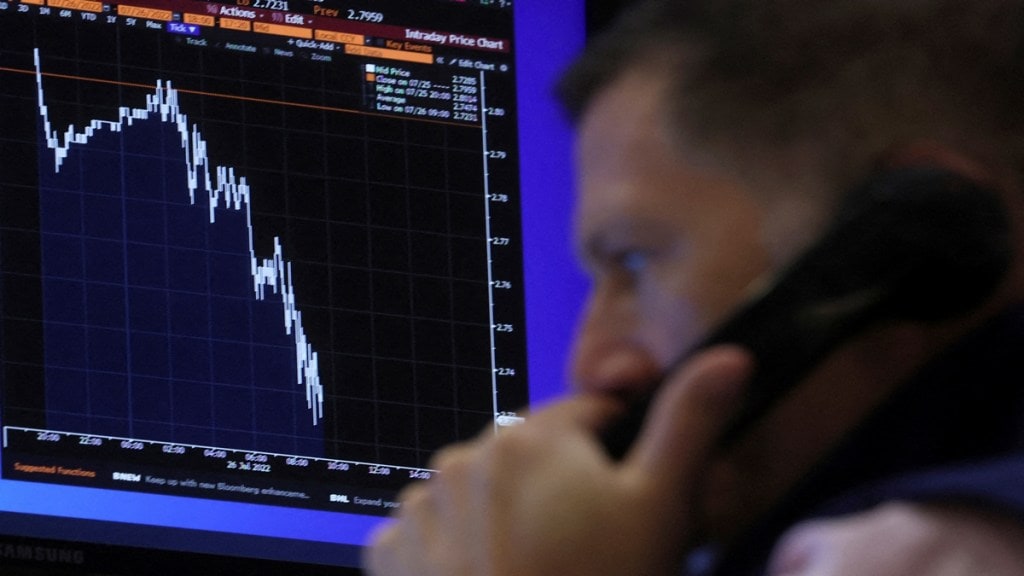The stock market crash 2024 is live for investors to witness as global indices tumble in tandem. Nikkei 225, a leading index of Japanese stocks closed the day down by 12.4% on Monday. Dow Jones Industrial Average futures fell by 444 points, or 1.11%. S&P 500 futures and Nasdaq futures dipped 3% and 5.5% respectively.
Some major losers on Monday in the pre-market trade:
NVIDIA is down by 13%
Tesla down by 10%
Apple down by 9.7%
Intel Corporation down by 6%
Palantir Technologies down by 14%
Amazon down by 8.77%
Why are the stock markets falling? Last week’s financial events have significantly impacted the world stock markets. While the US Fed kept the funds rate unchanged, the Bank of Japan raised rates while the Bank of England cut rates.
However, it seems the jobless data from last week demonstrated just how badly the higher-for-longer rate regime is harming the US economy. The markets are anticipating two more rate hikes by the Bank of Japan this fiscal year, which ends in March 2025, after it increased its policy rate to 0.25% and signaled a desire to push rates even higher. Japanese markets followed Wall Street’s falls, which were driven by concerns about a US recession and low profits from significant technology companies.
The recent stock market decline is on the back of poor jobs data, which raised investor concerns that the Federal Reserve could have made a mistake by leaving interest rates steady last week and that the economy is headed for a recession. Fed Chair Jerome Powell may have hinted at a September rate decrease during a news conference earlier this week, but a sharp downturn in the labor market has some questioning if it’s already too late.
According to data released on Friday, the US economy added 114,000 jobs in July, significantly less than market projections of 175,000. The jobless rate also unexpectedly rose to a 2021 high of 4.3%, as wage growth slowed more than predicted.
The yield on the US 10-year Treasury note fell to approximately 3.75% on Monday, reaching its lowest level in over a year on expectations that the Federal Reserve may slash interest rates more aggressively following a poor US jobs data that sparked fears of a recession.
Markets now expect the Fed to drop interest rates by 50 basis points in September, with total easing of roughly 155 basis points priced in for both this year and next. The S&P 500 is 5.7% below its all-time high. The Dow, off by 3.9%.
New Zealand’s benchmark S&P/NZX 50 index slumped 1.5% to close at 12,264 on Monday, marking its biggest one-day fall since February 2023, as global markets shuddered at the prospect of a US recession following weak jobs data.
The Nikkei 225 Index fell as much as 7% to roughly 33,370 during Monday trading, while the wider Topix Index fell 6.5% to 2,370, with both benchmarks reaching seven-month lows as investors grappled with the potential of increased interest rates in Japan. Local equities also fell on significant currency rises, lowering the profit forecast for Japan’s export-heavy businesses.
Whether markets continue to slide further or regain strength remains to be seen. If the corporate earnings are what matters in the long run, they seem to be in good shape till now. The second-quarter earnings season has had a solid scorecard thus far. Of the 75% of S&P 500 companies that have reported earnings, 78% have posted positive surprises, according to FactSet data. According to FactSet’s John Butters, that’s above the 5-year average of 77%.

